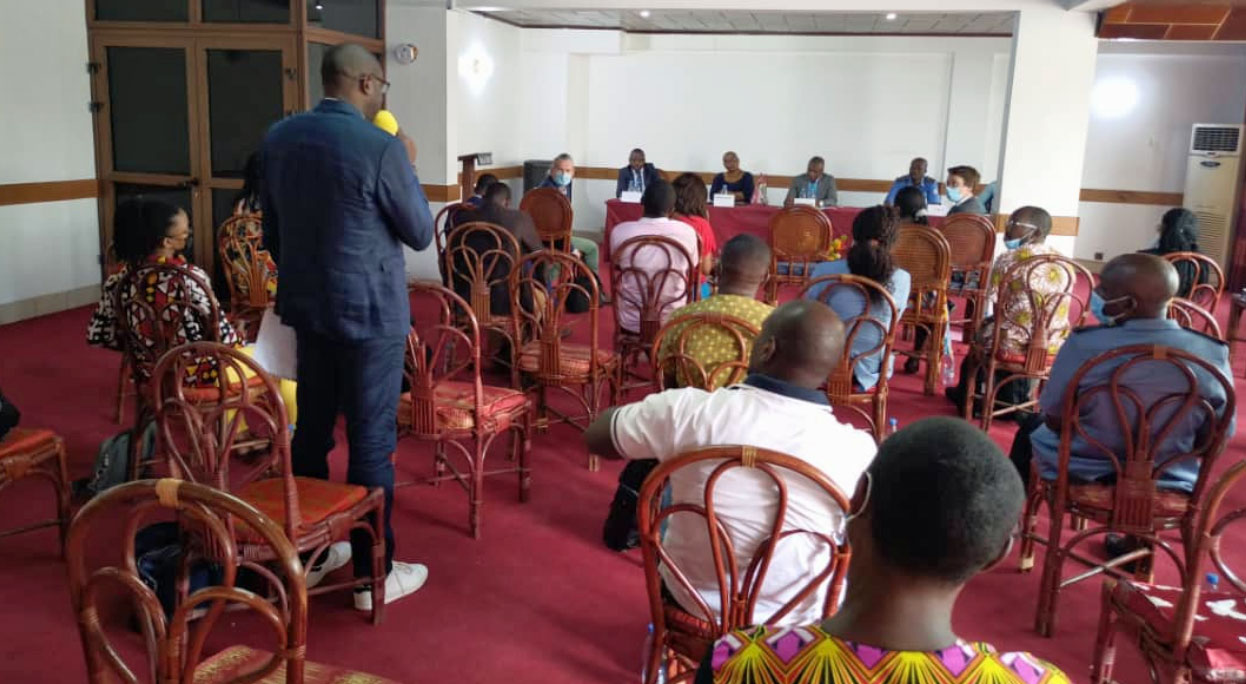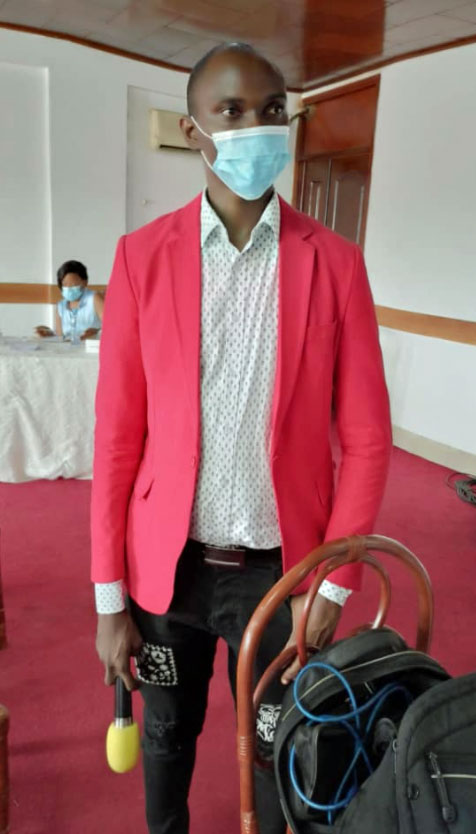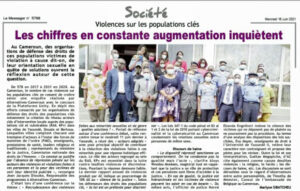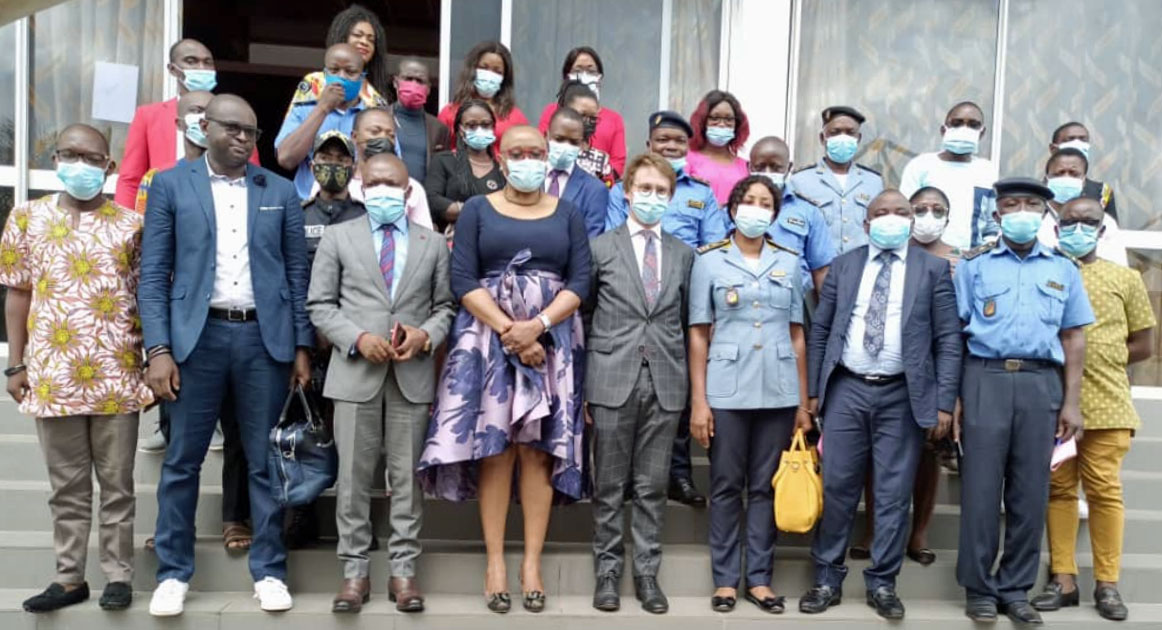Cameroon panel seeks an end to homophobic violence
Courtney Stans is the pseudonym for a Cameroonian human rights…
In a panel discussion last Friday, human rights activists, legal experts and a police officer proposed strategies for ending the homophobic violence plaguing Cameroon.


Violence against LGBTI people has been rising steadily in Cameroon, according to reports on human rights violations in the Central African nation. The tally of anti-LGBTI human rights abuses has risen in each of the last three years:
From 578 in 2017 to:
- 1,134 in 2018
- 1,380 in 2019
- 2,031 in 2020.
In response, the LGBTI advocacy association Alternatives Cameroon organized a panel discussion featuring representatives of law enforcement, the judicial system, diplomats and human rights groups. About 40 people attended the gathering in Yaoundé, Cameroon, on Friday, June 11.
During the conference, the various panelists, including a magistrate, an expert in human rights, a human rights defender, a moderator and a police officer, focused on Articles 347 of the Penal Code and the 2010 law on cybercrime and cyber security.
Eva Mayer from the National Commission on Human Rights and Liberties (CNDHL) gave an explanation of why Cameroonian legislators have opposed homosexuality and supported anti-gay Article 347-1 of the Penal Code, which makes physical sexual relations between people of the same sex a crime. Homosexuality is seen as something that reduces marriage and birth rates, violates traditional ancestral practices and customs, and increases the numbers of single-parent families and of children needing adoption.

To counteract those beliefs, civil society organizations should work to better inform government officials and the general population about the realities of life in Cameroon for sexual minorities, she said.
Other panelists’ names are withheld here for their safety.
A human rights defender on the panel noted that people are born heterosexual or homosexuals. No one chooses to become homosexual, he said, quoting former South African archbishop Demond Tutu: “You’d have to be crazy to choose a way of life that exposes you to such hatred”.
He proposed that community organizations work to to reduce homophobic violence by organizing more conferences to raise awareness of the problem and by producing reports on violence in Cameroon that can be presented internationally.
The local magistrate on the panel reminded people that Cameroonian law does not condemn people for their sexual orientation, though some people find pretexts for using the law to violate the rights of LGBTI people. Equality before the law is a basic principle nationally and internationally; the law must be applied in the same way to everyone, he said.
In order to reduce the rate of gender-based violence, panelists from the justice system proposed:
- Raising LGBTI people’s awareness about legal procedures;
- Making sure that victims follow up on their complaints;
- Building trust between people in power and LGBTI people; and
- Helping people understand that the primary role of the justice system is to protect people and not to punish them at all costs.
These were the overall recommendations of the panel:
- Advocacy directed at government officials and members of parliament.
- Raising awareness among the general population and families of LGBTI people.
- Organizing multiple conferences to raise awareness among key actors.
- Follow-up of legal proceedings by survivors.
- Establishing trust between LGBTI people and the country’s social and political leaders.
- Raising awareness of ethics, rights and duties of citizens
- Setting up programs about human rights in law enforcement training centers.
- Collaboration between civil society organizations and social and political leaders.

Panelists and participants in the meeting about how to combat homophobic violence.





